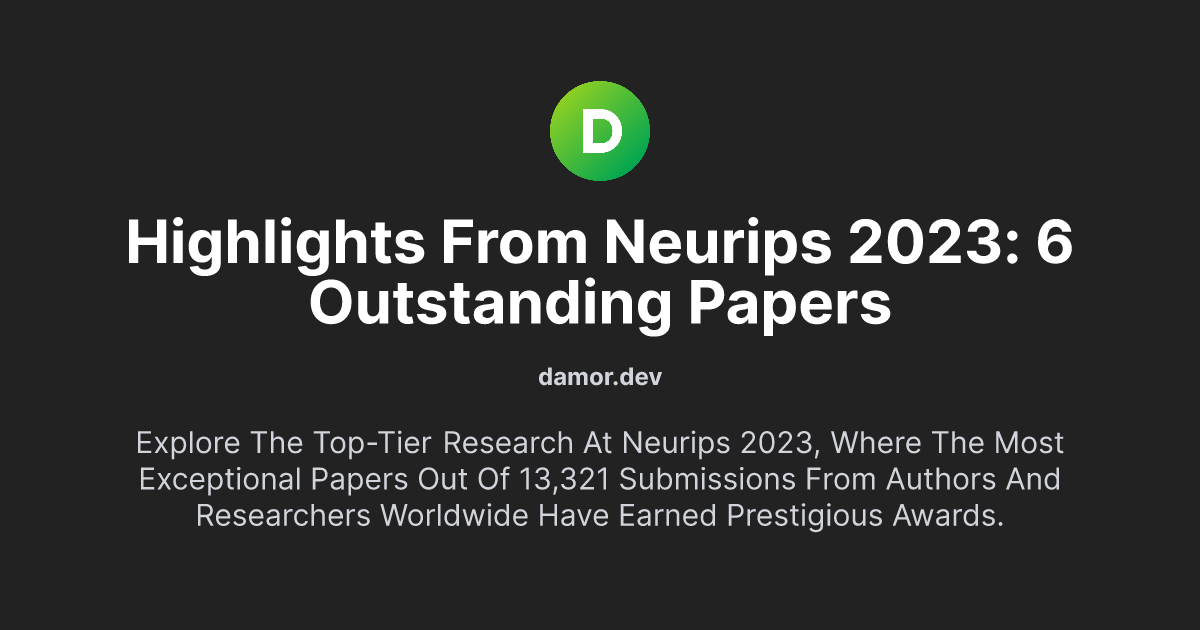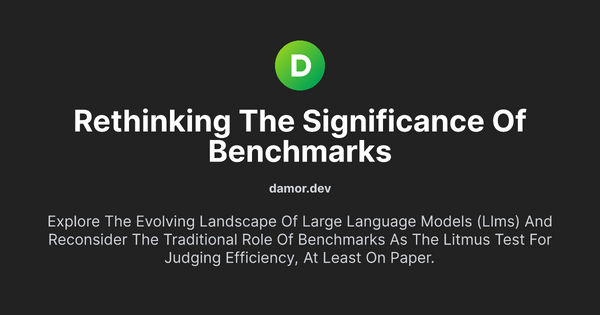Highlights from NeurIPS 2023: 6 Outstanding Papers

Top 6 Breakthroughs at NeurIPS 2023
NeurIPS 2023, the Neural Information Processing Systems conference, showcased exceptional research from around the globe. Out of the 13,321 submissions, six outstanding papers took center stage this year. Let's break down these groundbreaking findings in a way that's easy to understand:
1. Efficient Privacy Auditing for Machine Learning:
- Researchers Steinke, Nasr, and Jagielski introduced an efficient way to assess the privacy of differentially private machine learning systems.
- They tackled the challenge with a method that works in both black-box and white-box settings, proving its effectiveness on DP-SGD with just one model, while traditional methods require hundreds.
2. Debunking Large Language Models (LLMs) Abilities:
- Schaeffer, Miranda, and Koyejo challenged the idea that large language models exhibit true emergent abilities.
- Their experiments, using up to 900 billion tokens and 9 billion parameters, revealed that perceived emergent abilities may disappear with different metrics.
3. Direct Preference Optimization (DPO) for Unsupervised Language Models:
- Researchers presented DPO as a streamlined alternative to Reinforcement Learning from Human Feedback (RLHF) for controlling large unsupervised language models.
- DPO outperformed RLHF in sentiment control and improved response quality in summarization and dialogue, offering a more straightforward implementation and training process.
4. ClimSim: The Largest Hybrid ML-Physics Dataset:
- Machine learning experts introduced ClimSim, a dataset co-created by climate scientists and ML researchers, with 5.7 billion input-output vectors.
- This dataset isolates the impact of high-resolution physics on macro-scale climate states, supporting the development of hybrid ML-physics and high-fidelity climate simulations.
5. GPT Models in Sensitive Applications:
- With the rise of GPT models in healthcare and finance, researchers discovered undisclosed vulnerabilities, even in GPT-4.
- Despite improved trustworthiness, GPT-4 showed vulnerability to jailbreaking systems and producing biased or toxic outputs, highlighting previously unrecognized trustworthiness gaps.
In summary, NeurIPS 2023 brought forward groundbreaking research in privacy auditing, language model abilities, optimization techniques, climate simulation datasets, and revealed vulnerabilities in widely used GPT models. These findings contribute significantly to the advancement and understanding of artificial intelligence.


![[Solved] ZlibError:zlib:
unexpected end of file - payload](/content/images/size/w600/2024/02/Screenshot-2024-02-18-143905.png)


